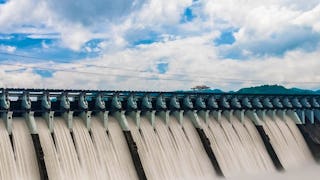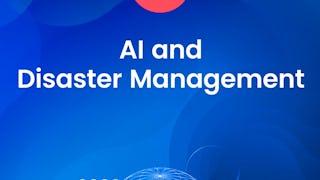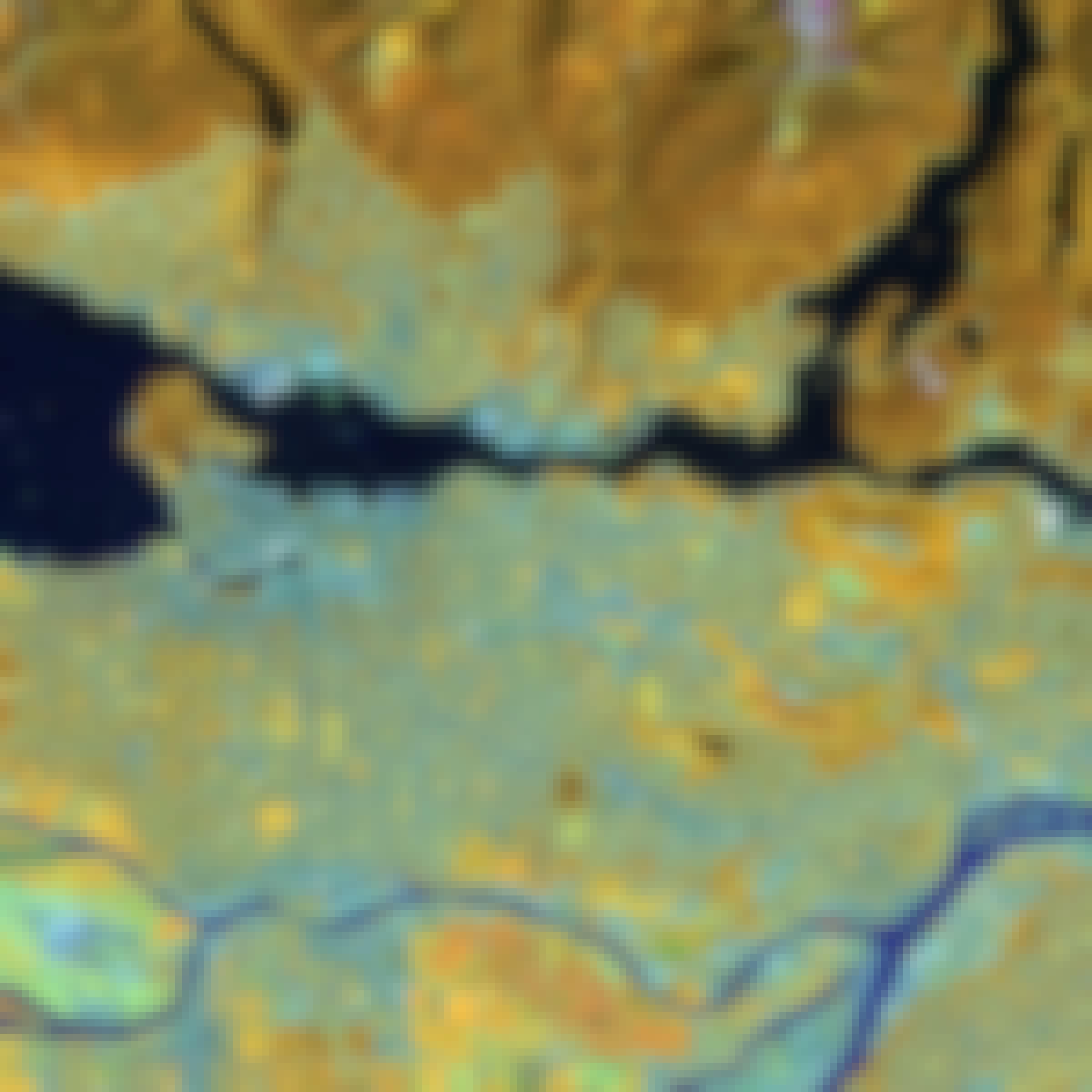Geospatial Information and Technology
Filter by
SubjectRequired *
LanguageRequired *
The language used throughout the course, in both instruction and assessments.
Learning ProductRequired *
LevelRequired *
DurationRequired *
SubtitlesRequired *
EducatorRequired *
Results for "geospatial information and technology"
 Status: Free TrialFree TrialU
Status: Free TrialFree TrialUUniversity of Illinois Urbana-Champaign
Skills you'll gain: Environmental Monitoring, Hydrology, Environmental Engineering and Restoration, Water Resource Management, Land Management, Natural Resource Management, Water Resources, Water Quality, Climate Change Adaptation, Environmental Science, Biology, Research Reports, Environment and Resource Management, Environment, Geographic Information Systems, Laboratory Testing, Geospatial Information and Technology, Technical Documentation, Microbiology
4.9·Rating, 4.9 out of 5 stars11 reviewsIntermediate · Specialization · 1 - 3 Months
 Status: PreviewPreviewL
Status: PreviewPreviewLLearnKartS
Skills you'll gain: Geospatial Information and Technology, Trend Analysis, Complex Problem Solving
4.6·Rating, 4.6 out of 5 stars11 reviewsBeginner · Course · 1 - 4 Weeks
 Status: PreviewPreviewU
Status: PreviewPreviewUUniversitat de Barcelona
Skills you'll gain: Global Positioning Systems, Physical Science, Water Resources, Water Quality, Geographic Information Systems, Geospatial Information and Technology, Chemistry, Environment, Environmental Science, Mechanics, Biology, Systems Of Measurement, Climate Change Mitigation, Remote Access Systems
4.5·Rating, 4.5 out of 5 stars284 reviewsMixed · Course · 1 - 3 Months
 Status: Free TrialFree TrialL
Status: Free TrialFree TrialLL&T EduTech
Skills you'll gain: Construction, Mechanical Engineering, Hydraulics, Construction Engineering, Hydrology, Civil Engineering, Structural Engineering, Mechanical Design, Equipment Design, Electric Power Systems, Safety Standards, Water Resource Management, Construction Management, Environmental Engineering, Safety Training, Structural Analysis, Water Quality, Electrical Power, Engineering Analysis, Geospatial Information and Technology
Advanced · Specialization · 1 - 3 Months
 Status: Free TrialFree TrialD
Status: Free TrialFree TrialDDeepLearning.AI
Skills you'll gain: Disaster Recovery, Image Analysis, Data Ethics, Emergency Response, Mitigation, Text Mining, Natural Language Processing, Artificial Intelligence, Computer Vision, Geospatial Information and Technology, Machine Learning Methods, Data Analysis
4.7·Rating, 4.7 out of 5 stars279 reviewsBeginner · Course · 1 - 4 Weeks

Skills you'll gain: Geospatial Information and Technology, Geospatial Mapping, Spatial Data Analysis, Geographic Information Systems, GIS Software, Spatial Analysis, Environmental Monitoring, Unsupervised Learning, Data Analysis Software, Image Analysis, Global Positioning Systems, Machine Learning, R Programming, Image Quality, Data Processing, Open Source Technology, Data Collection, Data Transformation, Dimensionality Reduction, Data Import/Export
Intermediate · Course · 1 - 3 Months
 Status: Free TrialFree TrialU
Status: Free TrialFree TrialUUniversity of Toronto
Skills you'll gain: Geographic Information Systems, GIS Software, Spatial Analysis, Spatial Data Analysis, Geospatial Information and Technology, Geospatial Mapping, Query Languages, Data Manipulation, Image Analysis
4.9·Rating, 4.9 out of 5 stars625 reviewsBeginner · Course · 1 - 3 Months
 Status: PreviewPreviewT
Status: PreviewPreviewTThe Pennsylvania State University
Skills you'll gain: Geographic Information Systems, Case Studies, Climate Change Programs, Systems Thinking, Design Thinking, Geospatial Information and Technology, Sustainable Design, Spatial Analysis, Collaborative Software, Decision Support Systems, Cultural Responsiveness
4.6·Rating, 4.6 out of 5 stars64 reviewsBeginner · Course · 1 - 3 Months
 Status: PreviewPreviewT
Status: PreviewPreviewTThe Hong Kong University of Science and Technology
Skills you'll gain: Civil Engineering, Structural Analysis, Hazard Analysis, Failure Analysis, Engineering Analysis, Risk Control, Geospatial Information and Technology, Physical Science, Mechanics, Augmented and Virtual Reality (AR/VR), Experimentation
4.7·Rating, 4.7 out of 5 stars62 reviewsBeginner · Course · 1 - 3 Months
 Status: Free TrialFree TrialU
Status: Free TrialFree TrialUUniversity of Colorado System
Skills you'll gain: Role-Based Access Control (RBAC), Authorization (Computing), Identity and Access Management, AWS Identity and Access Management (IAM), Geographic Information Systems, Geospatial Information and Technology, Encryption, Data Security, Network Security, Public Key Infrastructure, Wireless Networks, Extensible Markup Language (XML)
4.6·Rating, 4.6 out of 5 stars367 reviewsBeginner · Course · 1 - 4 Weeks
 Status: Free TrialFree TrialT
Status: Free TrialFree TrialTTableau Learning Partner
Skills you'll gain: Data Visualization Software, Spatial Data Analysis, Tableau Software, Data Storytelling, Data Visualization, Statistical Visualization, Interactive Data Visualization, Data Presentation, Geospatial Information and Technology, Stakeholder Communications, Geospatial Mapping, Business Reporting, Data Analysis, Business Analytics
4.9·Rating, 4.9 out of 5 stars102 reviewsBeginner · Course · 1 - 4 Weeks
 Status: PreviewPreviewU
Status: PreviewPreviewUUniversity of Illinois Urbana-Champaign
Skills you'll gain: Geospatial Information and Technology, Geographic Information Systems, Apache Hadoop, Spatial Data Analysis, Geospatial Mapping, Spatial Analysis, Big Data, Matplotlib, Data Processing, Computational Thinking, Distributed Computing, Data Manipulation, Python Programming
4.2·Rating, 4.2 out of 5 stars30 reviewsBeginner · Course · 1 - 3 Months